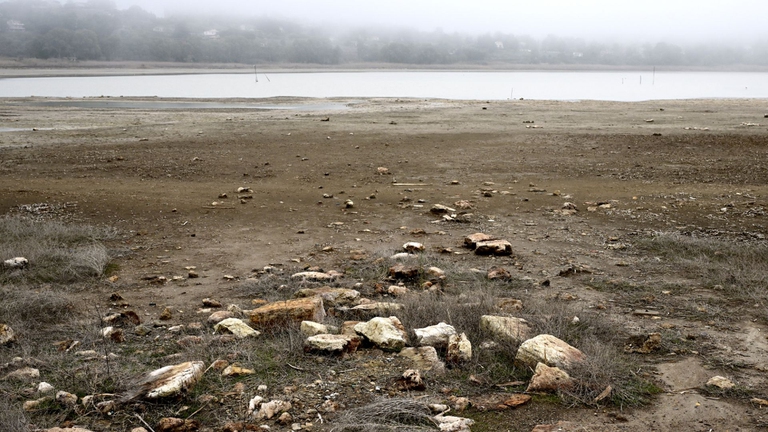https://www.lifegate.it/sicilia-sardegna-siccita
- |
- In the spring and summer of 2024, Sicily and Sardinia were affected by a severe drought.
- A World Weather Attribution study confirms that global warming has played a role.
Wanting to choose a symbol, the most eloquent is perhaps the lake of Pergusa, in the province of Enna.It was the only natural reservoir in Sicily:at the end of the summer there was only a puddle surrounded by earth.But the extreme drought that hit the Sicily and the Sardinia in recent months it has triggered consequences in almost every area: municipal administrations forced to ration water, vertical collapses of yields of fodder, legume and cereal fields, half-empty artificial reservoirs.A study conducted on behalf of the World weather attribution confirms that it did not arrive by chance:it's a clear one consequence of climate changes.

What the World weather attribution says about the drought in Sicily and Sardinia
The World weather attribution is the main body that deals with science of attribution, that branch which - through climate models - tries to establish whether a specific event, such as a wave of drought, a fire or a typhoon - has been made more intense or more likely by global warming.In fact, it is one thing to affirm - as science has done for decades - that climate change also leads to an increase and worsening of extreme weather events in the world;it's one thing to demonstrate that there is a cause-effect relationship between the increase in temperatures and a specific phenomenon.
In the case of the drought that hit Sicily and Sardinia this year, the data testified to this relationship.In both islands, the phenomenon can be classified as "extreme”;without climate change, it would have just been “severe”, therefore one step lower on the gravity scale.In the presence of even more intense global warming, in Sardinia it would still be "extreme" but more serious, while in Sicily it would become "exceptional”.In Sardinia a similar drought is more frequent, in Sicily more rare:The return time, in fact, is ten and one hundred years respectively.In both cases, anthropogenic climate changes have increased by 50 percent the chances of it happening.
The appeal of the NGOs:less money on fossil fuels, more on adaptation
In the eyes of environmental NGOs, these data only confirm the need to act immediately to stop the root causes of the climate crisis and protect the population.“Paying the price for the extreme drought in Sardinia and Sicily – amplified by an inefficient use of water resources and inadequate infrastructure – are the people who suffer water rationing, natural ecosystems and even entire production sectors such as agriculture and tourism", comment via a note Federico Spadini, campaigner Climate of Greenpeace Italy.“Very serious damage for which oil and gas companies, such as Eni, should instead be held accountable, which with their greenhouse gas emissions are the main causes of the climate crisis”.Yet, the statement continues, just the opposite is happening, with Eni which gives the green light to the production of methane in the Argo Cassiopea field, located right in the Sicilian Channel.
There note from WWF Italy, in addition to reiterating the no to fossil fuels, it forcefully calls for "the National Adaptation Plan to be made operational and priorities for action and adequate funding to be given", also by virtue of the fact that the climate crisis undermines "the very foundations of the economy and Italian competitiveness".
